Are you a property owner in Florida facing the challenge of managing a vacant property?
This guide covers everything you need to know about handling vacant property issues in the Sunshine State, from legal responsibilities to security measures.
Discover the risks of owning a vacant property, learn about recommended security measures, explore options for dealing with vacant properties, and find out how to avoid common issues.
Whether you’re considering renting out a vacant property or selling it, this article will provide you with valuable insights and best practices to help you navigate the process effectively.
Key Takeaways:
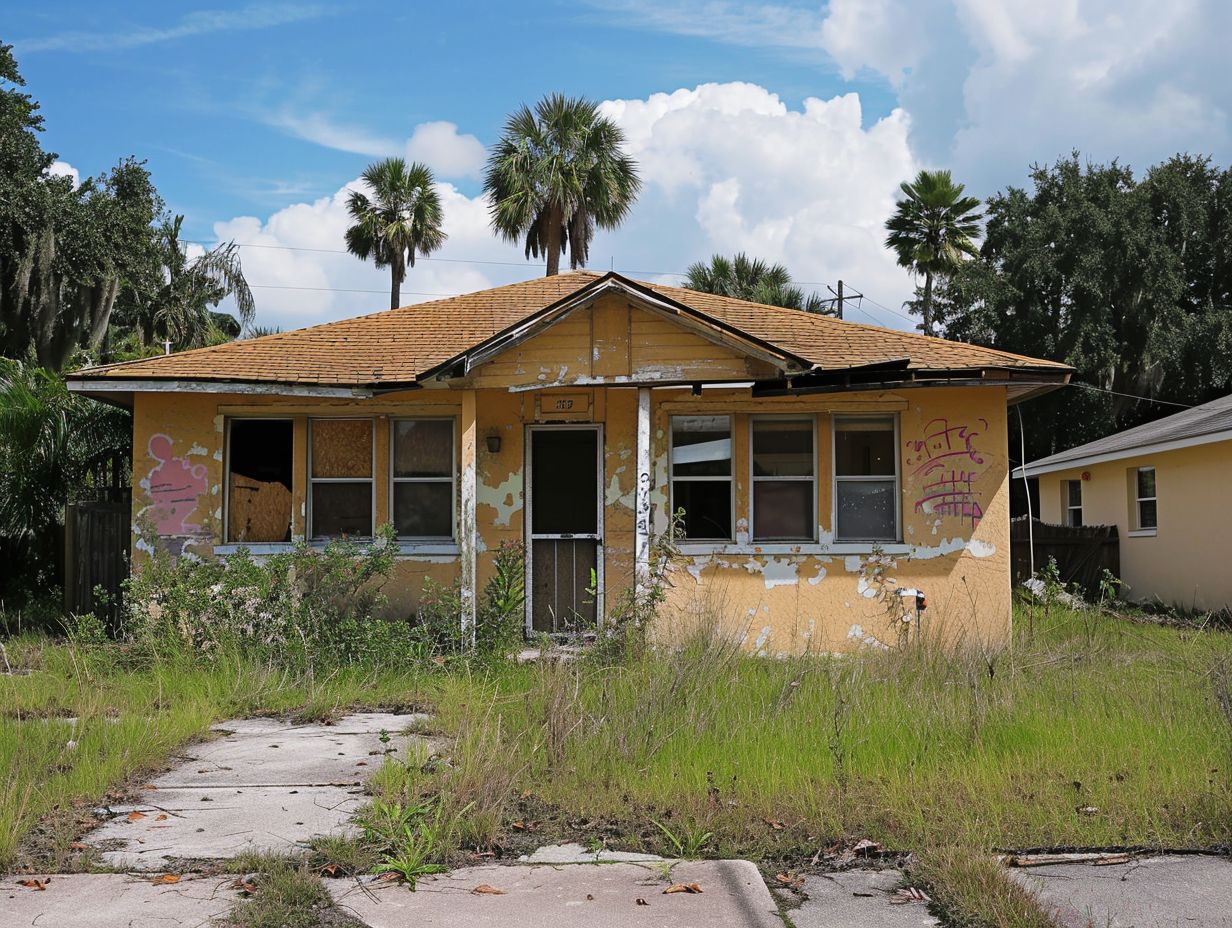
- Understand the definition of a vacant property in Florida to avoid potential legal issues.
- Securing and maintaining a vacant property is crucial to prevent risks and maintain its value.
- Consider all options, such as renting or selling, and seek professional advice to handle a vacant property in Florida effectively.
What is Considered a Vacant Property in Florida?
In Florida, a property is generally considered vacant when it does not have any residents living in it, and this classification carries various implications under Florida law and real estate regulations.
This definition of property vacancy plays a significant role in determining the legal obligations and responsibilities for property owners. According to Florida statutes, specific criteria need to be fulfilled for a property to meet the vacant status, such as the absence of active utilities, furnishings, or any signs of recent occupancy.
The COVID-19 pandemic has had a notable impact on property vacancy rates, with numerous homeowners either relocating or encountering challenges related to eviction. This scenario has triggered changes in the real estate market, particularly in regions like South Florida, where the demand for rental properties has surged due to shifts in work dynamics and housing preferences.
What are the Common Issues with Vacant Properties in Florida?
Vacant properties in Florida often encounter various issues, such as maintenance challenges, an increased risk of foreclosure, and adverse effects on the neighboring community. These properties, when abandoned, can deteriorate quickly due to the lack of regular inspections and upkeep, leading to safety risks and attracting unlawful activities.
The strain on community resources is also substantial, as these disregarded properties may necessitate involvement from local government entities to manage maintenance, security, and potential code violations.
According to the National Association of Realtors, vacant properties not only diminish property values in the vicinity but also contribute to blight and overall community decline, impacting residents’ quality of life.
What are the Risks of Owning a Vacant Property in Florida?
Owning a vacant property in Florida poses various risks, including increased liability, potential damages from vandalism, and the possibility of property abandonment. These risks can result in significant legal liabilities if someone is injured on the property or if it is used for illegal activities. Financial losses may also occur due to maintenance costs, unpaid property taxes, or a decrease in property value resulting from neglect.
Insurance plays a crucial role in safeguarding property owners from unexpected events such as fires, natural disasters, or liability claims. Statutory abandonment laws offer guidance on how to address abandoned properties, assisting owners in mitigating the negative impact it can have on neighborhoods and property values.
What are the Legal Responsibilities of Owning a Vacant Property in Florida?
The legal obligations of owning a vacant property in Florida involve ensuring proper upkeep, following statutory abandonment laws, and addressing potential safety risks.
Regular inspections are essential in meeting maintenance obligations for vacant properties. Periodic property inspections help in identifying issues like structural damage, pest infestations, or unauthorized entries. Non-compliance with these maintenance responsibilities can lead to legal repercussions under the Florida Statute, resulting in fines or penalties.
Using technology tools such as security cameras or smart sensors can assist property owners in remotely monitoring their vacant properties and promptly detecting any irregularities, thereby enhancing compliance with the law.
How to Secure and Protect a Vacant Property in Florida?
Securing and protecting a vacant property in Florida requires the implementation of various security measures and conducting regular inspections to prevent unauthorized access and property damage.
What are the Recommended Security Measures for Vacant Properties in Florida?
Recommended security measures for securing vacant properties in Florida include:
- Installing advanced monitoring systems
- Securing all entry points
- Maintaining a visible presence to deter potential intruders
Implementing technologies such as alarms, cameras, and smart locks can greatly enhance the overall security of the property. Alarms serve as an immediate alert system, cameras provide real-time surveillance, and smart locks offer remote access control.
Property management companies like Association Services of Florida play a crucial role in ensuring that these security measures are properly implemented and monitored. By partnering with such companies, property owners can have peace of mind knowing that their vacant properties are well-protected against any potential threats.
How to Maintain and Monitor a Vacant Property in Florida?
Maintaining and monitoring a vacant property in Florida involves scheduling regular inspections, performing necessary maintenance tasks, and ensuring the property remains in good condition. Different types of maintenance may be needed for a vacant property, such as landscaping upkeep, pest control, and HVAC system checks.
Periodic inspections are crucial to catch any issues early and prevent costly damages. Companies like FirstService Residential-South offer comprehensive services that include regular on-site visits and detailed reports to keep properties well-maintained.
Technology plays a key role in remote monitoring, allowing property managers to track conditions, security, and maintenance needs from a distance, ensuring properties are safe and secure even when unoccupied.
What are the Options for Dealing with a Vacant Property in Florida?
When dealing with a vacant property in Florida, owners have various options to consider, such as renting it out, selling the property, or exploring alternative uses to address the costs and risks linked with vacancy.
Can a Vacant Property be Rented Out in Florida?
A vacant property in Florida can be rented out as long as proper rental agreements are established, and both landlords and tenants comply with relevant laws and regulations.
Creating a rental agreement is a vital part of the process. Landlords must ensure that the agreement covers essential details such as rent amount, due dates, security deposits, and maintenance responsibilities. Screening potential tenants is also crucial, which includes conducting background and credit checks to evaluate their reliability and financial stability.
Once suitable tenants are chosen, managing the property involves regular maintenance, timely handling of repairs, and addressing any tenant concerns in accordance with Florida Statute and South Florida Law.
What are the Steps to Sell a Vacant Property in Florida?
Selling a vacant property in Florida involves several key steps, including preparing the property for the market, setting a competitive price, and working with real estate professionals to attract buyers.
Before listing the property, conducting a comprehensive market analysis is crucial to determine the optimal pricing strategy. Real estate agents play a vital role in this phase, utilizing their expertise to assess market trends and evaluate comparable properties. Board members of homeowner associations also contribute by providing guidance on property regulations and community appeal.
By understanding buyer preferences and market dynamics, sellers can position their property effectively. Insights from the National Association of Realtors underscore the importance of accurate pricing and strategic marketing to maximize the property’s exposure and potential sale price.
What are the Alternatives to Selling a Vacant Property in Florida?
Options for dealing with a vacant property in Florida include renting it out, entering into lease agreements for commercial use, or using it for seasonal rentals. Renting out the property can provide a consistent income stream and the potential for property value appreciation.
Property management companies can assist in tenant placement, maintenance, and rent collection. Challenges may arise from tenant turnover, property damage, or fluctuations in the rental market.
Entering into commercial lease agreements offers stability and long-term income potential. Property management companies can help negotiate leases and ensure compliance with regulations. Seasonal rentals can attract tourists and snowbirds, but effective marketing and management are essential for maximizing occupancy and rental income.
How to Avoid Vacant Property Issues in Florida?
Preventing vacant property issues in Florida necessitates proactive management, regular maintenance, and timely inspections to guarantee the property’s upkeep and adherence to all applicable laws.
What are the Best Practices for Managing a Property in Florida?
The recommended practices for managing a property in Florida involve consistent communication with property owners, adhering to regular maintenance schedules, and implementing effective management strategies to uphold the property’s value.
Property management companies, such as BeacCorp Property Management, offer professional services to oversee day-to-day operations, tenant relationships, and financial management. Partnering with a reputable property management firm enables owners to benefit from streamlined processes, cost-efficient maintenance solutions, and connections to a reliable network of vendors.
Owner engagement is also important, as being informed about property performance, market trends, and legal obligations can aid in making strategic decisions that positively influence asset growth.
How to Properly Prepare a Property for Vacancy in Florida?
Preparing a property for vacancy in Florida typically involves conducting thorough inspections, performing necessary maintenance, and ensuring all utilities are secured and functional.
One essential step is to check for safety hazards like faulty electrical wiring or potential fire risks. Inspecting the property for leaks and damages is crucial to address any issues before they escalate during the vacancy period.
Seeking assistance from professional services such as property management companies or maintenance contractors can aid in maintaining the property effectively and ensuring its security. These professionals can offer valuable advice on optimizing the property’s condition during the vacancy, providing peace of mind to both landlords and potential tenants.
What are the Benefits of Hiring a Property Management Company in Florida?
Utilizing the services of a property management company in Florida provides various benefits, such as professional maintenance services, efficient management practices, and peace of mind for property owners. Property owners can enjoy enhanced tenant relations through effective communication and conflict resolution by partnering with a property management company like FirstService Residential-South.
Regular property inspections ensure prompt resolution of any maintenance issues, thereby maintaining the property’s condition and value. These companies possess comprehensive knowledge of local regulations and laws, assisting property owners in maintaining compliance and preventing potential legal issues, which ultimately saves them time and resources in the long term.
Frequently Asked Questions
What is considered a vacant property in Florida?
In Florida, a vacant property is defined as a property that is not currently occupied and does not have a valid lease or rental agreement in place.
What are some common issues associated with vacant properties in Florida?
Some common issues with vacant properties in Florida include vandalism, theft, squatters, and deteriorating conditions due to lack of maintenance.
How can I prevent squatters from taking over my vacant property in Florida?
To prevent squatters from taking over your vacant property, it is important to secure all entrances and windows, install security systems, and regularly check on the property to ensure it is not being occupied without your knowledge.
What are my responsibilities as a property owner for maintaining a vacant property in Florida?
As a property owner, you are responsible for maintaining your vacant property in Florida, including regular maintenance, upkeep, and repairs to prevent any potential hazards or code violations.
Are there any specific laws or regulations regarding vacant properties in Florida?
Yes, there are specific laws and regulations in Florida regarding vacant properties, including requirements for proper maintenance, notification of vacancy to local authorities, and penalties for neglecting a vacant property.
Do I need to inform my insurance company if my property becomes vacant in Florida?
Yes, it is important to inform your insurance company if your property becomes vacant in Florida. Vacant properties may require a different type of insurance coverage to protect against potential risks and liabilities.

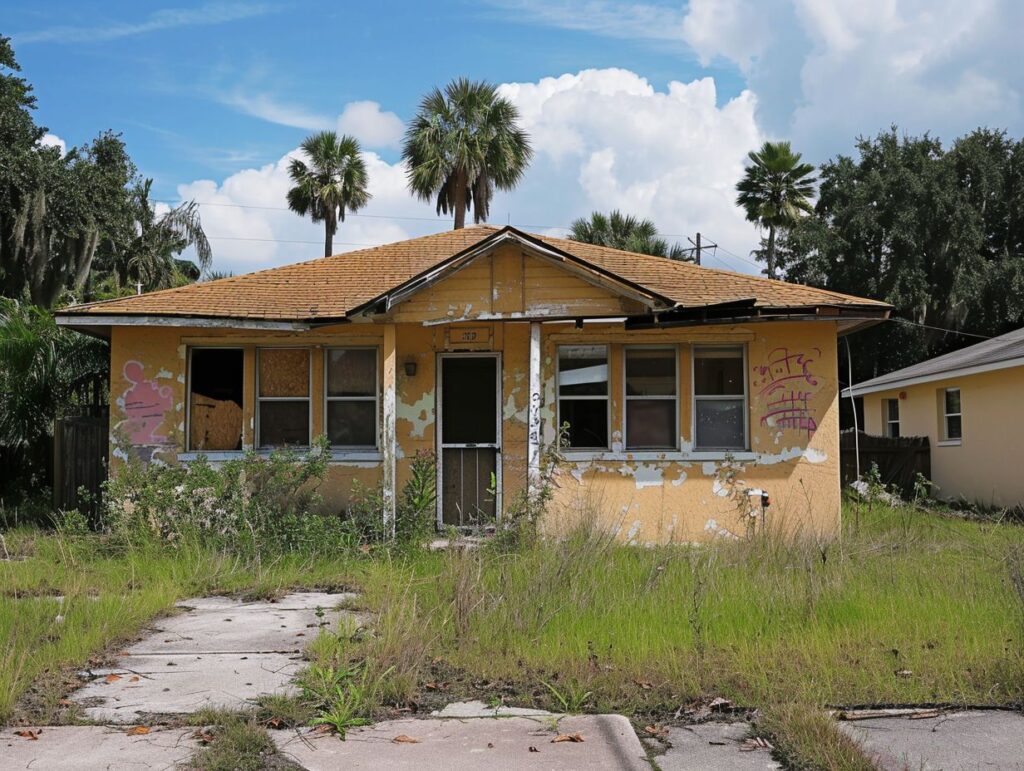
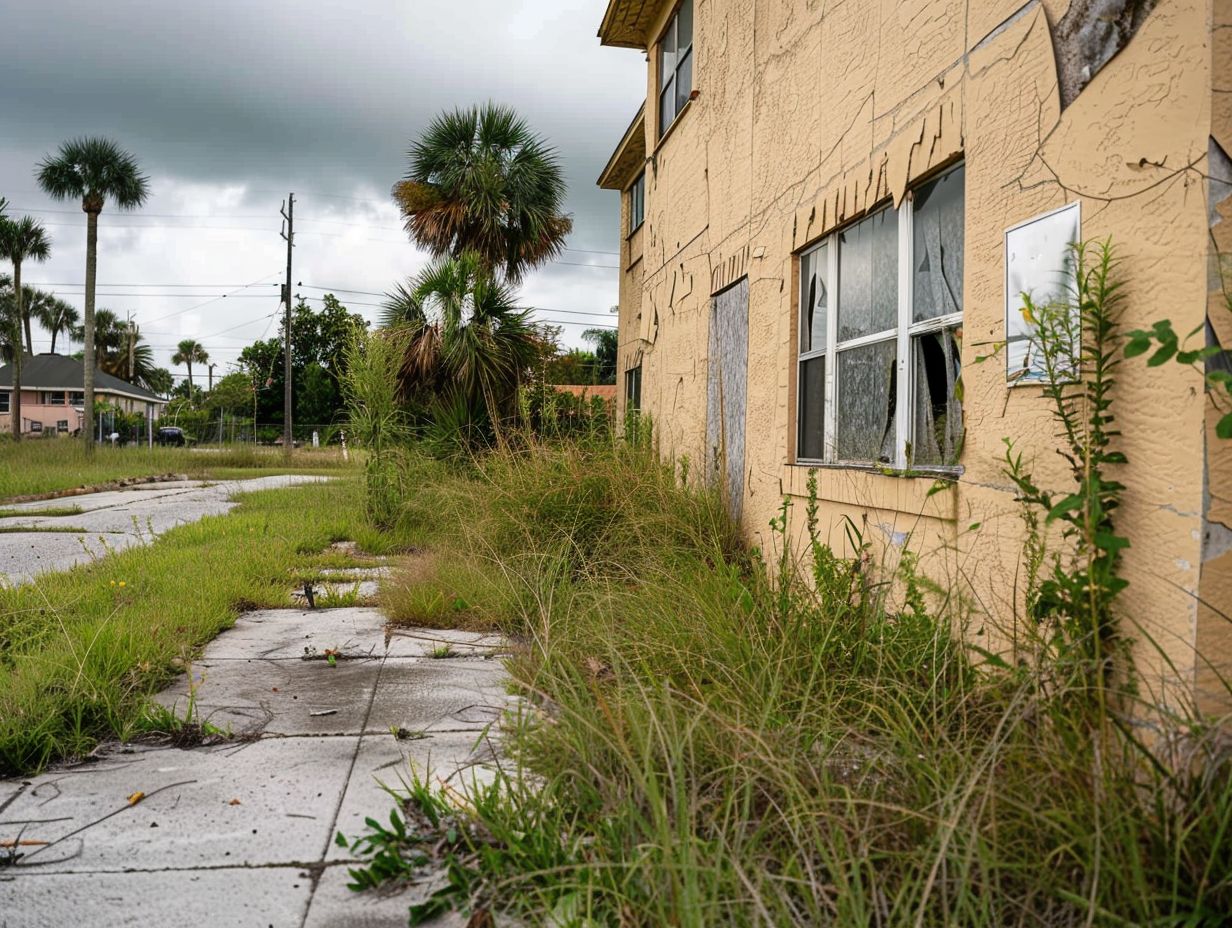
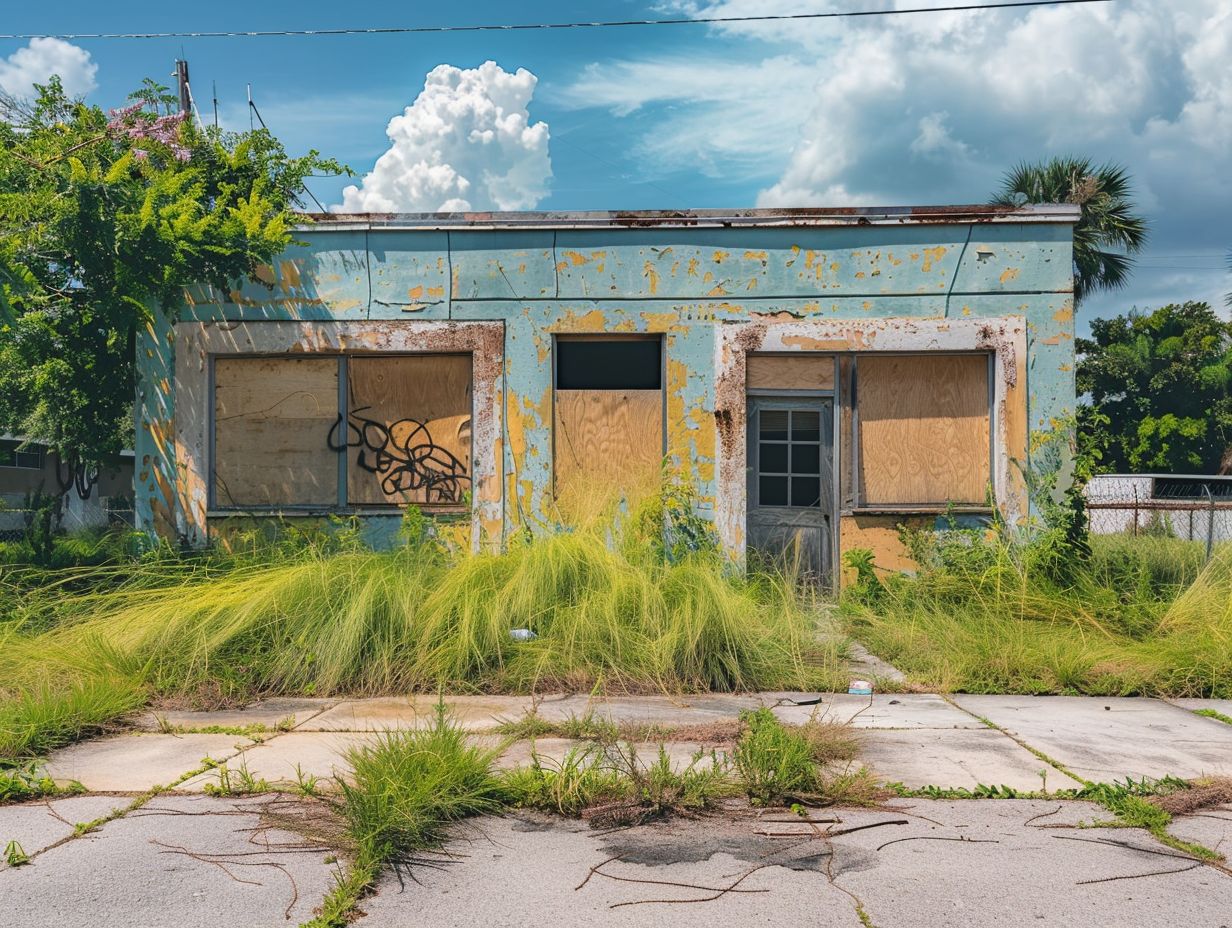
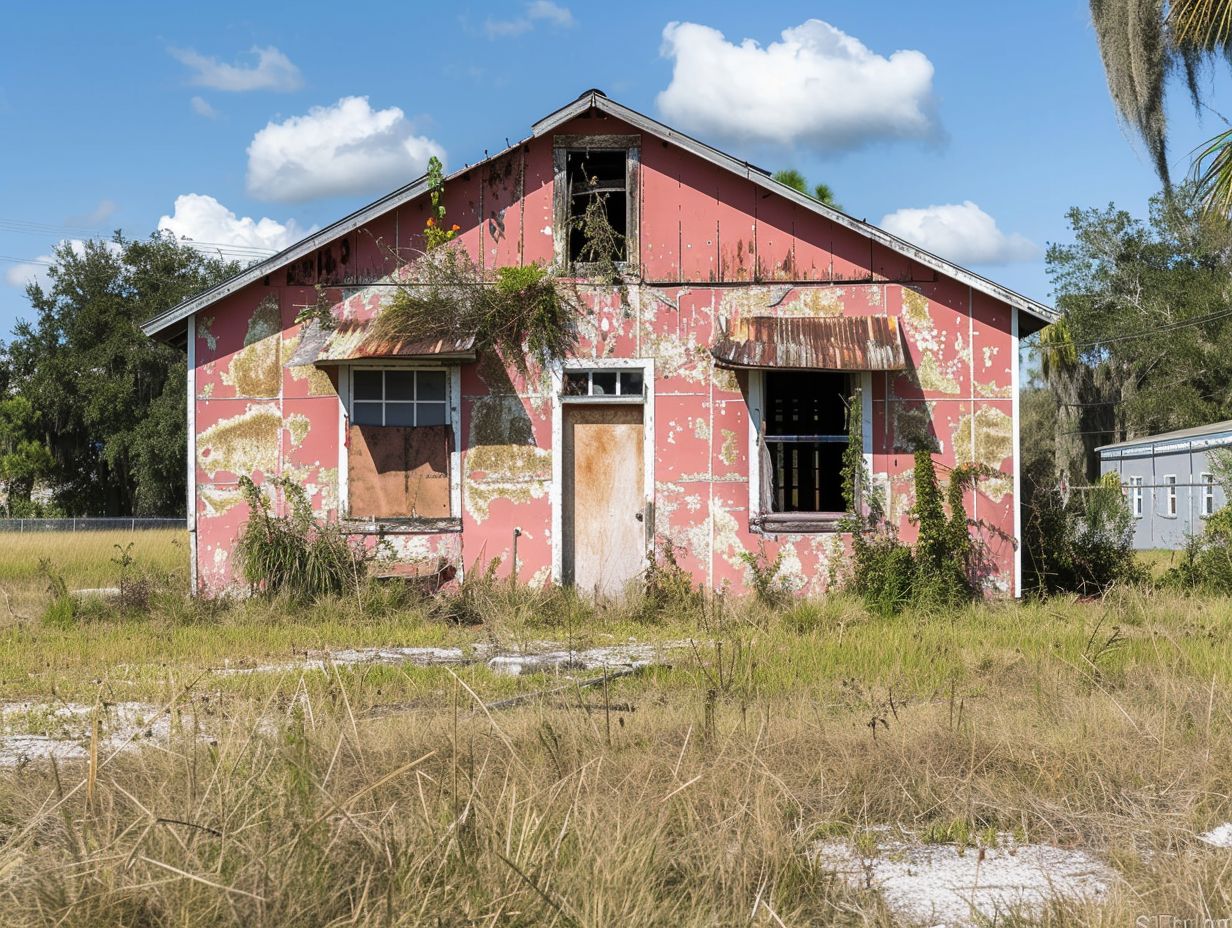













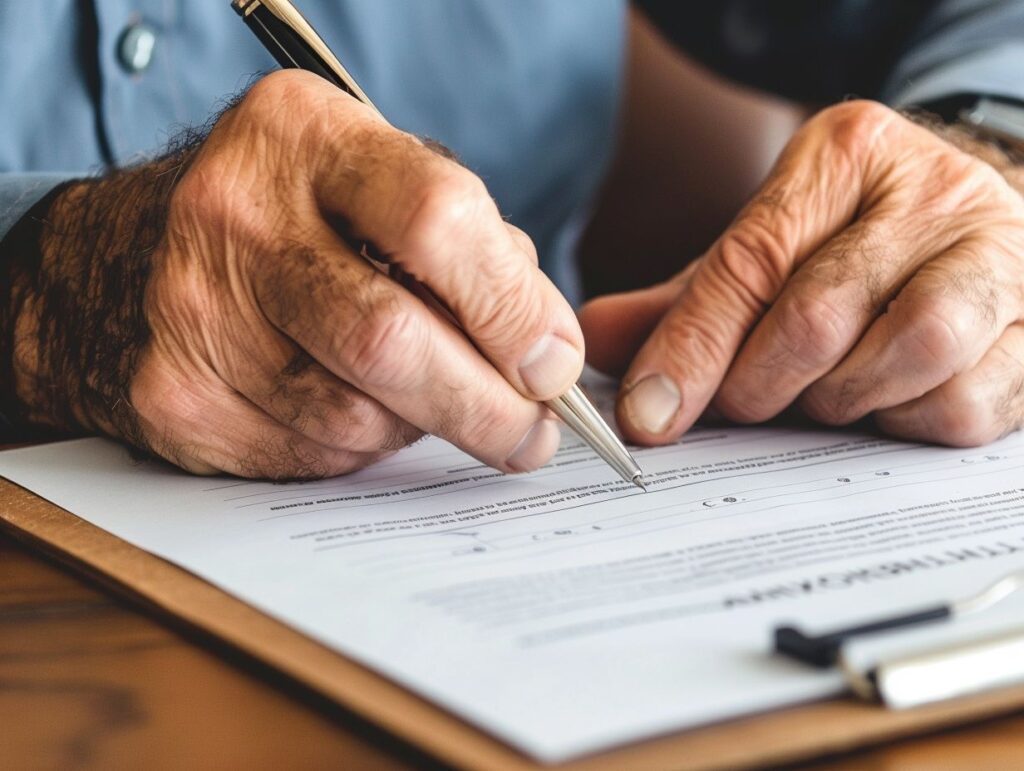







Rate this article:
Average rating 0 / 5. Vote count: 0
No votes so far! Be the first to rate this post.
No Comments yet!